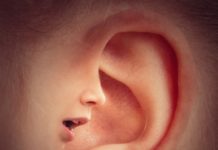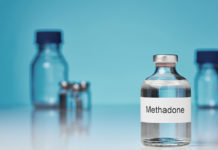One Solution to Prescription Drug Overdoses: Make Oxycontin and Similar Drugs Safer
It's too bad, of course, that our state and federal regulators can't seem to muster the political will to require the marketing and prescribing of safer opiate painkillers. Indeed, the federal Department of Health and Human Services could ensure that Medicare and Medicaid include agonist-antagonist drugs in their drug formularies and save many lives in one bold sweep. But until the feds get their act together -- are you listening, President Obama? -- it's up to the families who have lost loves ones to prescription drug overdoses to sue the drug makers and force change.
CDC Reports ‘Substantial’ Increases in U.S. Suicide Rate for Middle-Aged Americans
Between 1999-2010, the suicide rate among Americans aged 35-64 years increased 28.4 percent. Major U.S. mental health institutions emphasize mental health treatment as a solution. However, suicide, depression, and many other serious emotional difficulties can be most easily prevented by political courage and different public policies, not by medical treatments.
Your Weight is Forbidden Fruit
In inpatient eating disorders care, we were required to step on the scale but were not allowed to know what we weighed. We were told it was “against recovery” to know our weight; that knowing it would surely cause a devastating relapse.
Mad in the Spanish-Speaking World
Locomún, a collective group in Spain, has launched MIA-Hispanohablante, an affiliated web magazine for the 400 million people who share Spanish as their first language.
Upon the U.K. Launch of Psychiatry and the Business of Madness: A Reflection
This is a study of psychiatry. It is a study of an area officially a branch of medicine and overwhelmingly seen as legitimate, benign, progressive, and effective. But what if society had it wrong? What if this were not legitimate medicine? Dare we imagine a world where helping is not professionalized, where caring is not commodified. Where, in the spirit of community, we go about the business of life together?
Delay of Diagnosis: The Placebo Effect of Behavioral Diagnosis
This means that what ADHD proponents present as validation of a diagnosis of a real and treatable disorder is in fact a placebo effect caused by an ostensibly scientific label, which exists in synergy with an efficient, legal drug. The ADHD label produces this placebo effect because its diagnosis is based on behavior that in reality could be observed by anyone. What is observed sounds "scientific"; it is easily understandable and highly obvious. When the diagnosis is turned into an action plan, we forget that there is nothing scientific about it and that its evaluation is purely subjective and clinical; that it creates a great many false positives, and that a drug prescribed in half of the cases indeed does have serious side effects.
Talking About Psych Diagnoses and Drugs: A Primer for Parents & Professionals
It is important to tell parents the truth about what can and cannot be known about their child. In this way, people come to appreciate that labels and treatments offered by psychiatric professionals are far from being grounded in hard science.
Life Lessons and Trauma Informed Care
My first real introduction to the world of madness and “mental illness” was when I was 21 years old and I left home to start my mental health nurse training. Reflecting on my own experiences has led me to consider how the trauma of participating in the psychiatric system can affect the way we care for others.
Much of U.S. Healthcare Is Broken: How to Fix It (Chapter 2, Part 4)
Les Ruthven addresses a ghostwritten study claiming effectiveness of antidepressants for children and adolescents.
Consumers Beware!
Twenty-five years ago, I organized a Mother’s Day Protest demonstration at the American Psychiatric Association meeting in NYC. We were 12 mothers and one male. The highlight of that APA meeting was the launching of Clozapine, the first of the so-called atypical neuroleptic drugs, which the APA promoted as a “scientific breakthrough treatment for schizophrenia.” Those atypical neuroleptics proved to be weapons of destruction.
Competition, Collaboration & Collusion: The Triple Threat for Our Kids
The disorders that the drug companies are zealously targeting in very young children are; ADHD, Autism-spectrum disorder, Temper Outburst Study, Early Onset Bipolar Disorder, Schizophrenia and Depression. These diagnoses elicit fear in the hearts and minds of parents. These diagnoses will ignite that fear and the search for treatment or a “cure” will begin.
How Coalition or Community Engagement Work Damages Advocates
Have you ever tried to do community engagement or join a coalition of people working on mental health stuff? If you have been unhappy doing coalition work or community engagement, they may have said it was you. They may have complained that you were too demanding or too triggered by your trauma issues. But the problem is not on us as advocates. This is a structural problem. How do you keep the disease model people from dominating?
Important New Book— “Outside Mental Health: Voices and Visions of Madness”
The central question that Will Hall asks is: What does it mean to be called crazy in a crazy world? The answers Hall receives in more than 60 interviews and essays from ex-patients, scientists, journalists, artists, and dissident psychiatrists and psychologists restores the full range of color to our humanity. Outside Mental Health reminds us that perhaps the most pathetic aspect “inside mainstream mental health” is how simplistic, boring, and reductionist it is—when our natures are so very complex, fascinating, and non-reductionist.
You Can Have Any Kind of Treatment You Want, Providing it’s Our Kind
Mental health nurse education supports institutional psychiatric practice in an insufficiently questioning way. Its formal curricula in universities are often undermined by the informal curricula of practice environments. As an institution, mental health nursing pays insufficient attention to both these issues because it is an arguably un-reflexive and rule-following discipline.
Empowerment is Vital to Dialogical Recovery
In my previous blog, I used a new term, Dialogical Recovery to describe the importance of dialogue to recovery. I and others in the...
Why Is the APA Proposing Sweeping Changes to Training Requirements?
The American Psychological Association has proposed sweeping changes to training, focusing on the behavioral health model, which reduces the complexity of the human experience to observable behaviors.
On Recovering from Psychiatric Labels and Psychotropic Medications: An ‘Occupy APA’ Manifesto
To Readers: I've decided to sway, briefly, from my traditional story-telling style on this blog in order to post my short speech from this...
Vertex Pharmaceutical Executives Cash in on False Hopes
Senior executives at Vertex Pharmaceuticals made millions of dollars each by selling company stock in the days after the Cambridge-based pharmaceutical reported promising clinical...
Walking
I hope this post doesn’t seem like a stretch, because it’s about something so basic it’s almost embarrassing: Walking, the intuitive act of putting one foot in front of the other to carry you from one place to the next. Yet if you’ve ever endured damage or a withdrawal syndrome from a psychiatric medicine, you’ll also know that things, like walking, that look and seem basic to others, and that did so in your past, “pre-medication” life, do not in fact come easily. Sometimes, on the worst days, they don’t come at all.
Birthing Bliss, Birthing Trauma, and the Role of the Perinatal Patient
I remember looking out of my living room window, drawing on my connection to all the women in the world who had felt this energy before, all that were in that moment, and all that would in time to come. This energy, this incredible power, was like a wave that I was riding for a brief window of my life, and sharing with my baby to move us through time into a new type of union. To me, this wasn’t anything to resist, to be afraid of, or to suppress. All I had to do was be there to witness, and keep my mind from getting in the way.
#Diversity? — What “Solidarity” Really Looks Like
What would it look like if national peer-run mental health organizations and other national leaders came out with statements in support of other movements' struggle for freedom from oppression? What would it look like if we were truly unified in solidarity? We would have community-based centers providing intentional support, open 24 hours a day, instead of crowded jail cells holding people in pain. It wouldn't be easy, but we have to do it.
Trauma-Ignored Care? Going to the MAT on Opioids
Our current, reductionistic approach to mental health issues doesn’t offer any insights or explanations on the etiology of most mental disturbances. Similarly, medication assisted treatment (MAT) focuses on the surface symptoms of opiate abuse without addressing the underlying causes of overwhelming distress and pain.
A Significant Indigenous Scholarship and Another Antipsychiatry Battle
Why is this scholarship important? Because it will fund, create recognition for, and promote research into violence against Indigenous women. It includes not only what is conventionally seen as violence such as murder, rape, and battery, but also violence perpetrated by institutions, including psychiatry.
Medicating Children: A “Whistleblower’s Lawsuit” Raises a Novel Legal Question
In the past few years, a number of pharmaceutical companies have admitted to federal charges that they illegally marketed psychiatric medications for non-approved uses,...
Guidelines for a Thoughtful Discussion
Back in December, when I decided to turn madinamerica.com into a webzine, I envisioned it as serving several purposes. I wanted to create a...
















